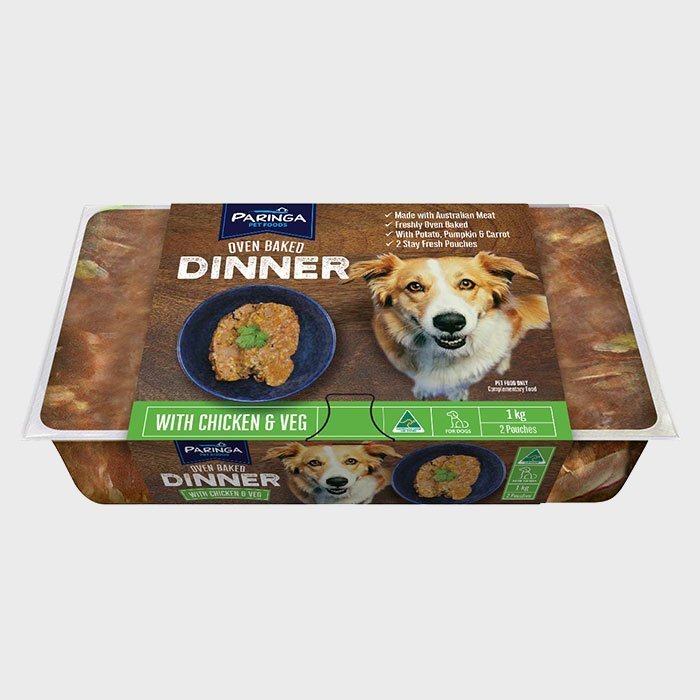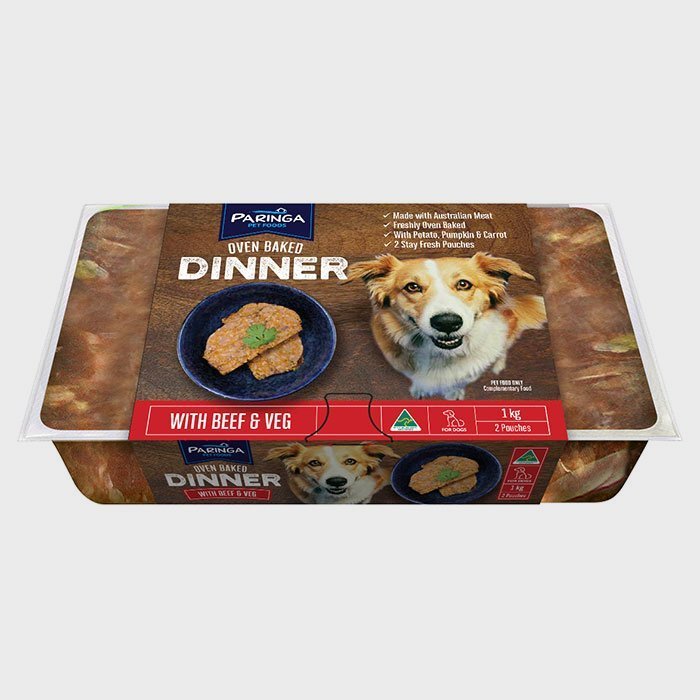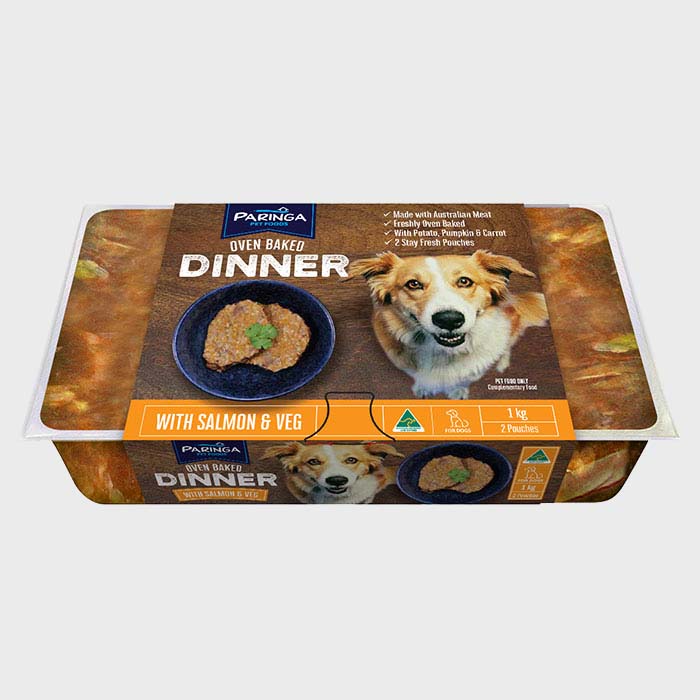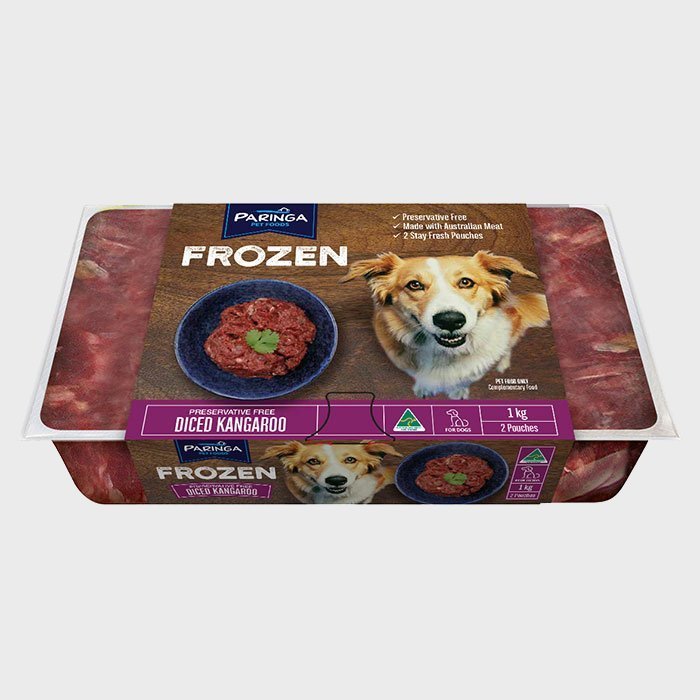Dog gut health: your guide to understanding & improving dog digestion
Why is dog gut health so important?
Just like humans, a healthy gut microbiome is essential for your dog’s overall health. The gut is your pup’s first line of defence against pathogens and toxins. It’s also responsible for digesting their food, absorbing nutrients and making vitamins. But the importance of dog gut health extends far beyond that! We now know that it impacts the dog’s immune system, body weight, metabolism, behaviour, brain and mental health too.
When bacteria get out of balance in the dog digestive system, disorders such as inflammatory bowel disease, allergies and skin conditions, diabetes, kidney issues and even depression can be the outcome. And from a much more practical point of view, having good dog gut health means that your dog has regular bowel movements that are comfortable and easy to pass. Such dog poos are much easier for you, the owner, to clean up as they’re fully formed (not sloppy) and easier on your nose!
Want to know the singular most important factor in dog gut health? It’s their dog food.
What to feed your dog
Diet is the number one way you can impact dog digestion and gut health. That’s because, the food your dog eats will influence which bacteria survive and thrive in the gut.
In nature, dogs evolved as carnivores, subsisting on a diet of mainly animal proteins with a little vegetable matter as well. Although our household pets no longer hunt and scavenge for food, the dog digestive system has not changed. So, it makes sense that they will enjoy optimal gastrointestinal health when eating a diet similar to that of their natural ancestors.
These days, may dogs exist on a diet of high carbohydrate kibble. Unfortunately, such a diet does not promote the growth of beneficial bacterial species in the gut and this can cause inflammation. Over time, this can impact the wellbeing of your four-legged friend. Your dog will be much happier and healthier on a diet that emphasises high protein from animal sources.
The number one food for good dog gut health
The very best food for a healthy gut in dogs is raw food. Fresh, raw meat products are nutrient-rich and provide a source of natural microbes and enzymes for your dog. Many of these important natural bacteria and enzymes are destroyed in cooked dog food or processed dog food products, which is why raw meat diets are considered beneficial for your dog’s gut health. Top ingredients to look for are high meat protein, animal fats and raw meaty bones.
Many pet owners notice an improvement in their dog’s health when they make the switch to a fully raw diet or a partially raw food diet. In studies, dogs fed a natural, raw food diet were found to have more diversity and healthier gut microbiomes than those dog’s fed processed kibble diets. Switching from kibble to raw meat-based diets has also helped overweight dogs move back into the healthy weight range.
We have some useful information if you’re looking to learn more about feeding raw food and how to get started.
Other foods that promote a healthy dog microbiome
|
Prebiotics – are sources of fibre that specifically feed and therefore promote the growth of the healthy gut microbes. Some pet foods do contain this fibre, or you can add prebiotics separately to your dog food. Probiotics – are strains of live, healthy types of bacteria. When consumed, the idea is that the bacteria will reside in and begin to populate in the gut. However, they often don’t stick around for long, so their effects may be more temporary than long lasting. Fermented Foods – just like humans, you can feed your dog fermented food to improve their gut health. For example, small quantities of yoghurt, kefir, sauerkraut, kimchi and others are safe to feed your pooch. Grain-free or gluten-free – many pet owners are now opting for grain-free dog foods as grains have been associated with poorer digestion and in some cases, allergies. Just be sure to read the label as some may still contain high levels of carbohydrates or insufficient levels of protein. |
 |
Top lifestyle tips to help build a healthy gut for your dog
Walkies – Your dog acquires microbes everywhere, not just from their food. Make sure you take them out and about in nature so they can play in the dirt, sand, water and around different plants, as well as with other dogs. Even fresh air helps, so don’t keep doggy stuck inside all day. Having contact with other people, animals and the outside world helps build up exposure to a diverse range of microflora which will strengthen their dog gut health.
Reduce stress – stress impacts a dog’s behaviour and their gut health so find ways to minimise this. Signs of stress might be chewing things, gnawing at or licking their own skin, destructive behaviour, barking or pacing.
When sick – sometimes you might need to give your dog antibiotics. This can be important for them to overcome an illness or infection but can damage the dog digestive system too. You can compensate for that after the course of antibiotics, by providing high quality dog food, extra prebiotics and probiotics.
Food intolerance – can be quite common in dogs. If you know that their diet is balanced and nutritious but they still experience poor dog digestion, take a look at the possibility of food allergy in your dog.
Changing your dog’s diet – if you decide to switch to a raw food diet, this should be done gradually over 7 days to minimise the chance of discomfort. Learn more about changing dog food here.




